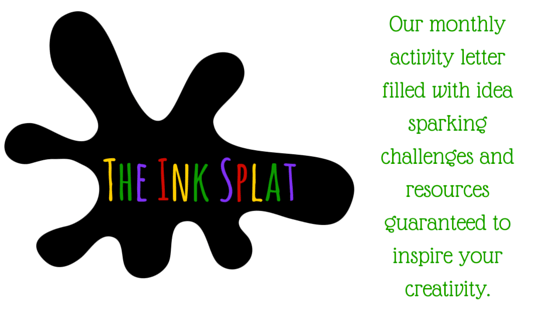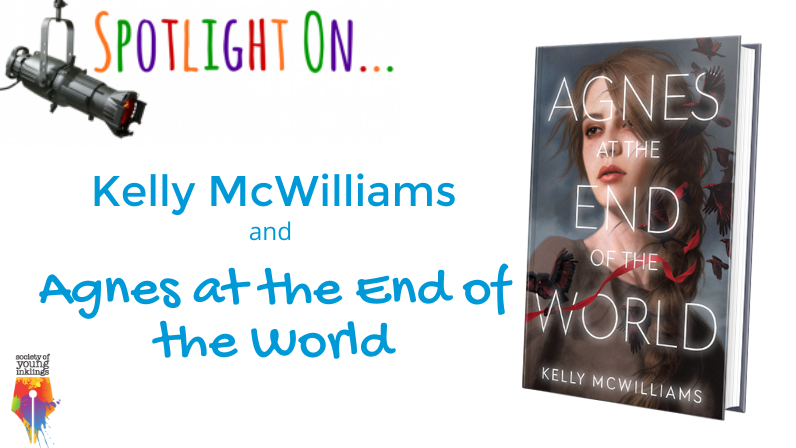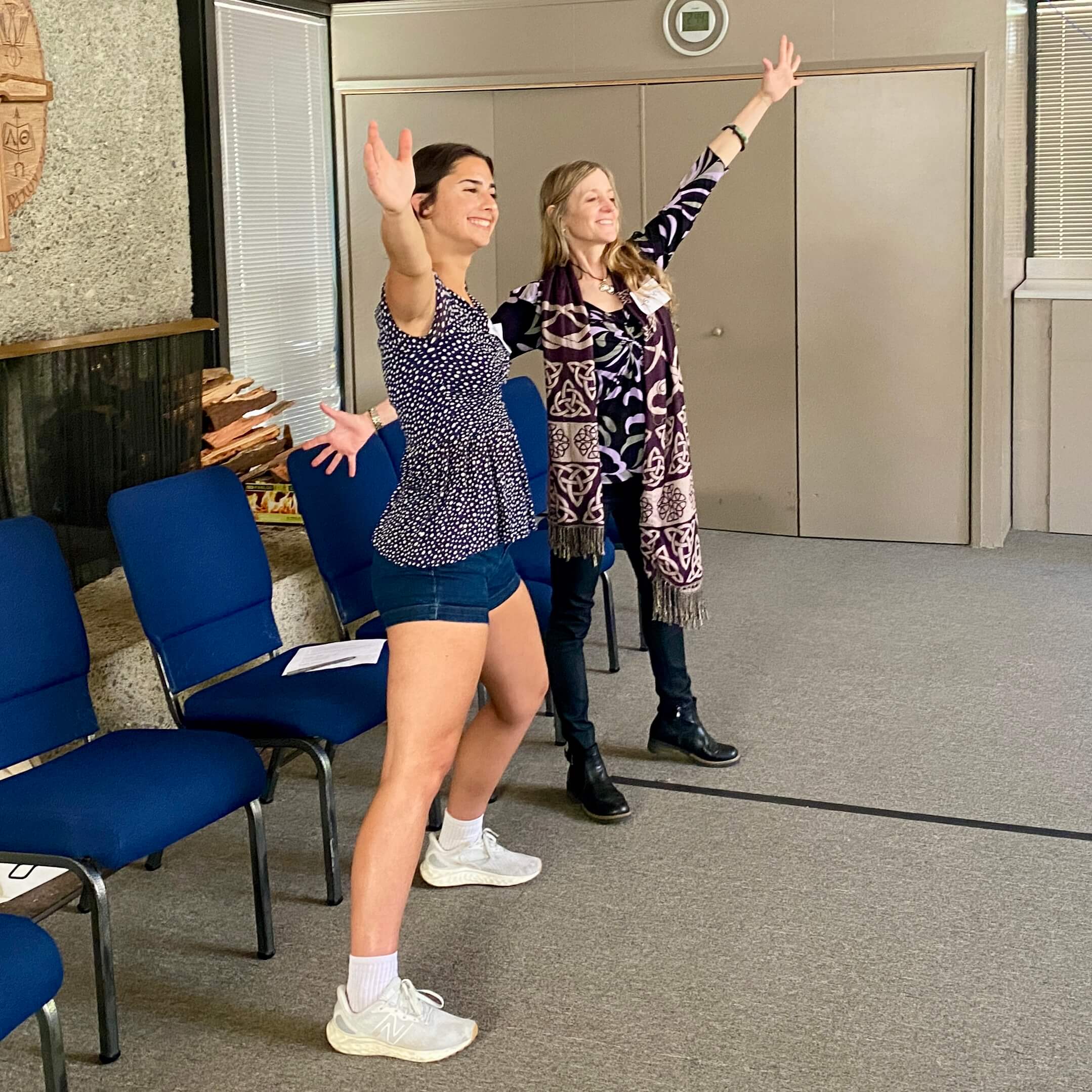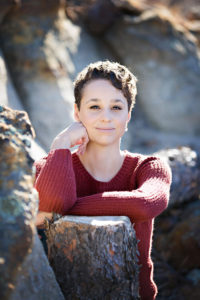For our September issue, we talk with author Kelly McWilliams about her newest YA novel, Agnes at the End of the World. In this interview, we discover what it was like for her to become a published author at a young age and why the process of writing is more important than being published.

Writing Challenge
Inspiration is the focus in this edition’s writing challenge! Inspiration is all around us if we take the time to intentionally look for it. Kelly reminds us that, “Writers are sponges.”
PROMPT: This month, your writing challenge is to find a small notebook that you can keep within arms’ reach for 24 hours. Record small snippets of inspiration as they show up. You might hear someone say something that makes you laugh, or see an oddly shaped cloud out your window. Like Kelly, you might even have a dream that sparks your imagination. After you collect inspiration for a day, use at least one item you wrote down and transform it into a tiny scene. You can follow your inspiration in any direction you want … No need to keep the item or words you captured in their original form. For an extra challenge, combine two or three of your pieces of captured inspiration.
Write up to 2,000 words. Submit your response here. You might be published on our website!

An Interview with Kelly McWilliams
Did you know you wanted to be a writer when you were a child? What’s the earliest thing you remember writing?
I always wanted to be a writer. The earliest thing I remember writing was a poem, in second grade, about a sunset. I also always remembered seeing my mother write—she’s a novelist—and loving how she’d carve out these quiet hours for herself each day. As a teenager, I started emulating her, and that led to a novel I published as a teenager called DOORMAT!
You had a book published when you were just fifteen years old! Tell us more about that.
I grew up in Arizona, where the summers are long and extremely hot! Usually I spent those summers indoors, reading. But one summer I decided to write a book—I call it my “lucky book” because it all came out nearly complete in one draft. My mother read it, and encouraged me to try to find an agent for it, which I did! It was a wild experience to be published so young. It was stressful in some ways, marvelous in others. Just remember everyone’s path to a writing life is different. My mother says she didn’t really find her groove—or her genre—until she was in her 60’s. But that doesn’t mean the work you do when you’re younger doesn’t matter! It’s practice. Every sentence you write sharpens your thinking, your crafting ability, and your talent. It can also teach you a lot about who you are, and who you want to be.
What is your writing process like? How do you keep up your momentum?
I try my best to touch base with a work in progress every single day—even if only for two minutes! That way, I know my brain will keep working on it throughout the day, even when I’m busy doing other things. For example, while writing AGNES AT THE END OF THE WORLD, I walked past a church whose choir was singing “Amazing Grace.” I thought: Oh, Agnes would love that song! And it turned out the spiritual would become an integral part of the plot! Who knew?
Now let’s talk more about your new YA novel, Agnes at the End of the World. How were you inspired to write it?
A recurring dream—a simple image, really—inspired the book. I saw my main character, Agnes, wandering through the desert taking care of a small child. I knew she was running to someplace, and also from someplace. I could tell she was in great danger, but I didn’t know from what! Curiosity led me to write her story.
It turned out she was escaping from a cult very much like a real cult that exists near where I grew up. My childhood experiences of seeing that cult featured on television inspired the cult escape aspect of the book.
Writers are a bit like sponges: We soak up the world around us and often find that world reflected in our works in progress. At the time I began writing AGNES AT THE END OF THE WORLD, my community was braced for a Zika epidemic (we lived in a tropical location where mosquitos carrying a terrible virus thrived). The radio warned us every day about wearing mosquito repellent and avoiding standing bodies of water. So a pandemic made its way into the novel, too.
What was it like publishing a novel about a pandemic during a pandemic?
It’s been very strange! The book came out in June, but I still haven’t seen it in a bookstore. I think the pandemic means the book won’t reach as many people as I’d hoped—many bookstores and libraries are still closed or operating on reduced hours. However, because I did write a hopeful pandemic story, I take solace in imagining that those who do find the book will find it resonates with them more than it might’ve done in a pre-pandemic world.
If you have dinner with any book character, who would you pick?
Katniss Everdeen seems like a great dinner companion. Maybe a little intense, but I’m willing to skip dessert so she can get back to business!
What would you tell your younger writing self?
I would tell her that “being a writer” is different from the process of writing—and that it’s the process that matters. We live in a fast-paced world where fame is over-valued. The only thing you truly have to do to be a writer is: write. In time, you’ll find the story that really ignites your talent, or you’ll get enough practice under your belt to complete a long project, like a novel or even a trilogy. But the rush to get to the point where you’re holding a finished book in your hand is just an illusion. In the end, after the book is out, it’s the time you spent working on it (especially those really great writing days!) that you’ll remember.

INKLINGS CONNECT
THE WAY WORDS MOVE US
Join us September 13 and 14 in Portola Valley, CA for our 2nd Annual Inklings Conference!
Featuring a keynote with author Joanna Ho, this conference includes creative writing breakout sessions in our beautiful redwood grove, workshops on using improv to step into a character’s shoes, experiments in word play, a storytelling workshop, and reflective writing to tap into your unique voice.
A special thanks to Kelly McWilliams for sharing with us! You can find more of her books here:
 Kelly McWilliams is a mixed-race writer who has always gravitated towards stories about crossing boundaries and forging new identities. For this and so many other reasons, young adult literature will always be close to her heart. She is a graduate of the Walnut Hill School for the Arts and Brown University. Her upcoming novel, Agnes at the End of the World, benefitted from a We Need Diverse Books Mentorship.
Kelly McWilliams is a mixed-race writer who has always gravitated towards stories about crossing boundaries and forging new identities. For this and so many other reasons, young adult literature will always be close to her heart. She is a graduate of the Walnut Hill School for the Arts and Brown University. Her upcoming novel, Agnes at the End of the World, benefitted from a We Need Diverse Books Mentorship.
Kelly has crafted stories all her life, and her very first novel, Doormat (2004), was published when she was just fifteen years old. Doormat became a Junior Library Guild selection and led to a feature in Seventeen magazine. Kelly has previously worked as a staff writer for Romper, covering issues important to women and families. When she’s not writing, she’s reading, cooking (with mixed results), or hiking. She lives in Colorado with her partner and young daughter.

